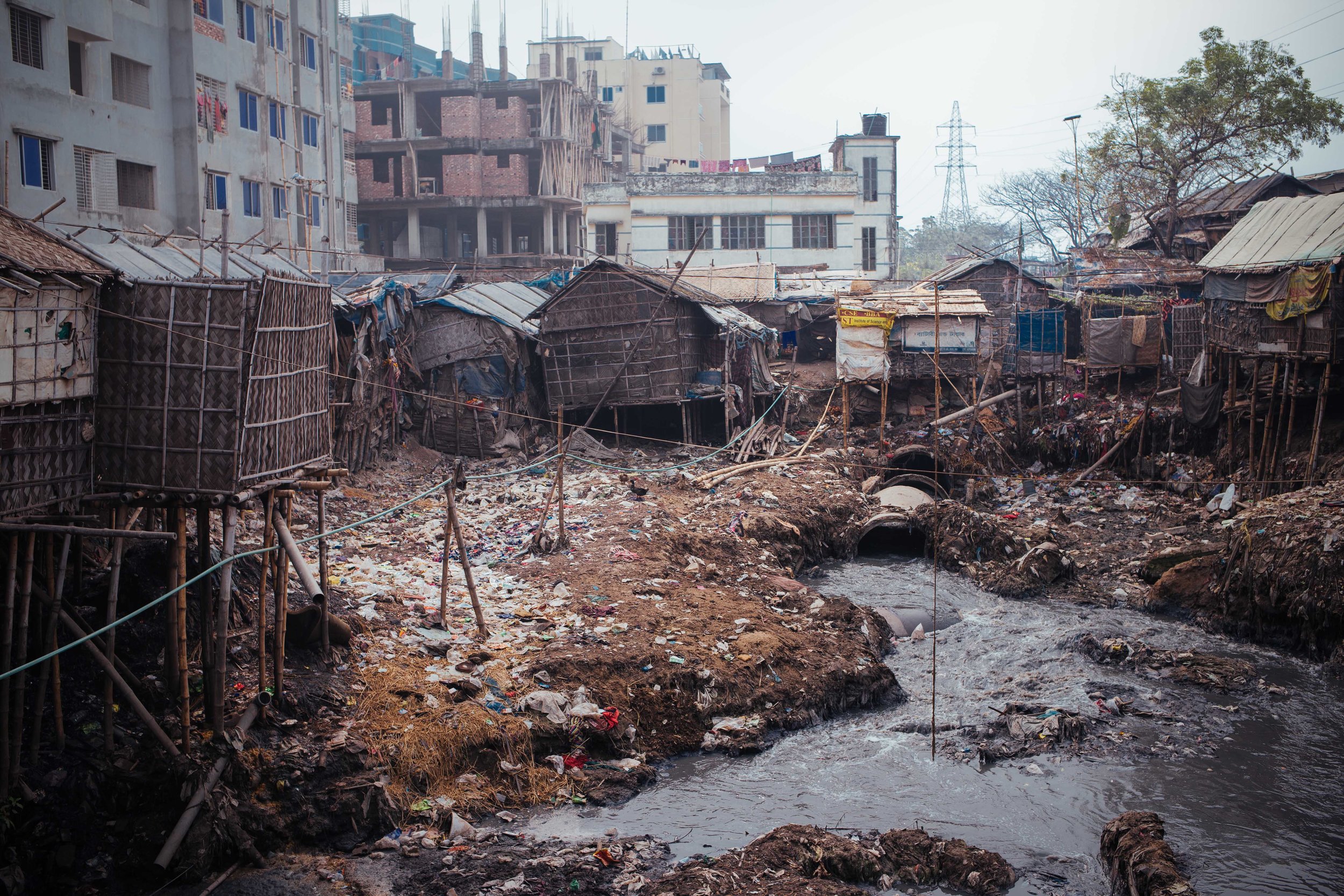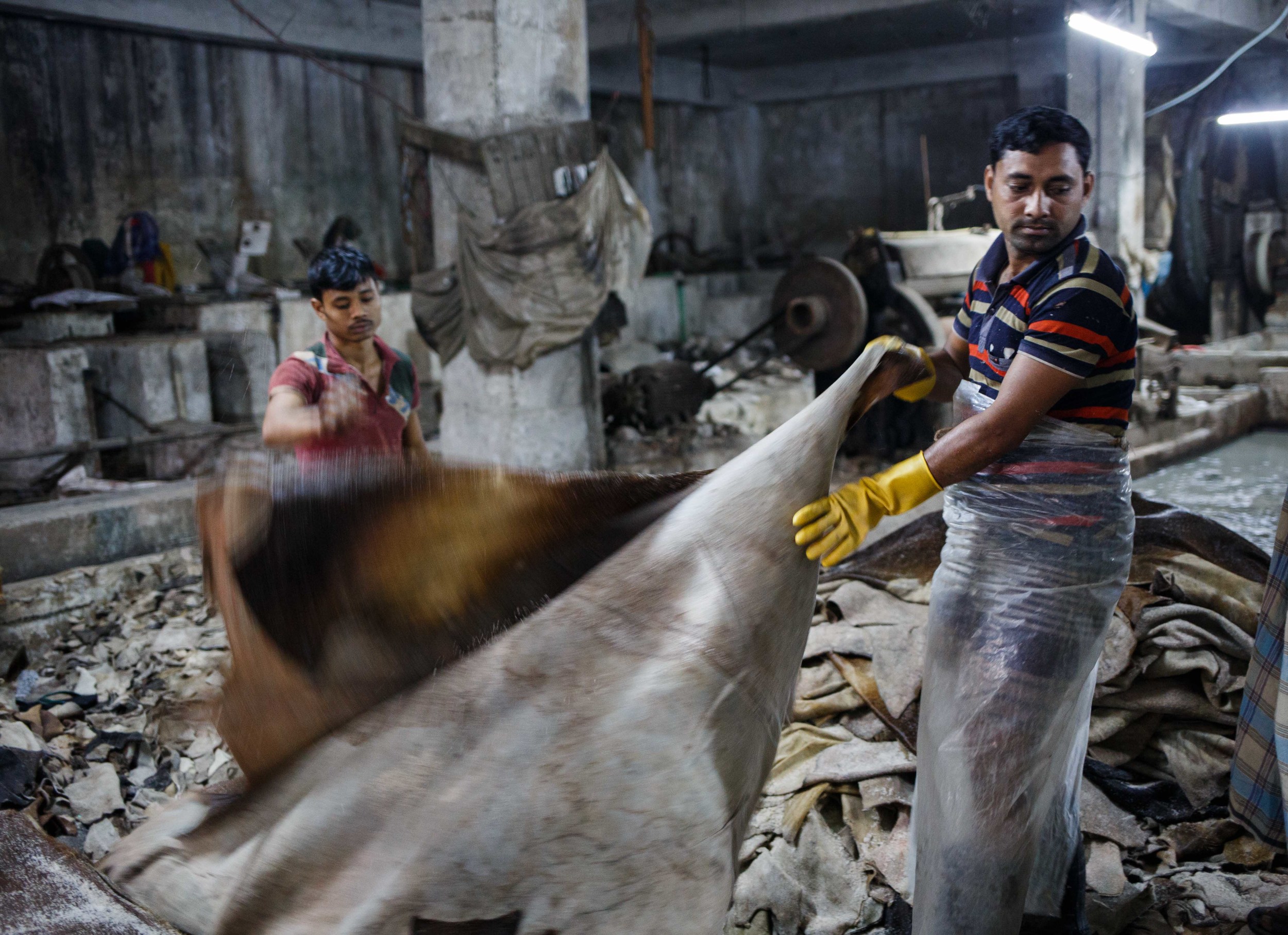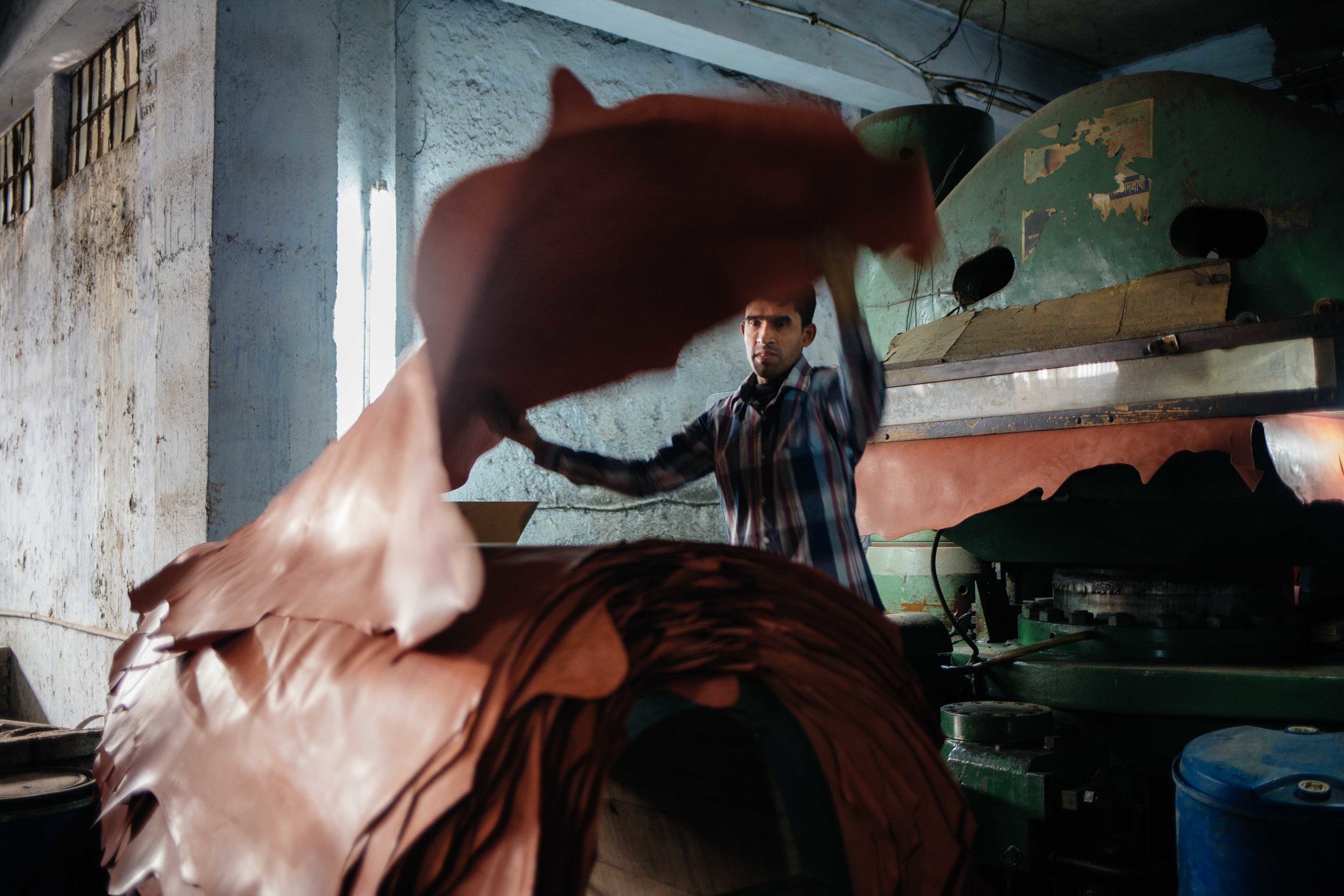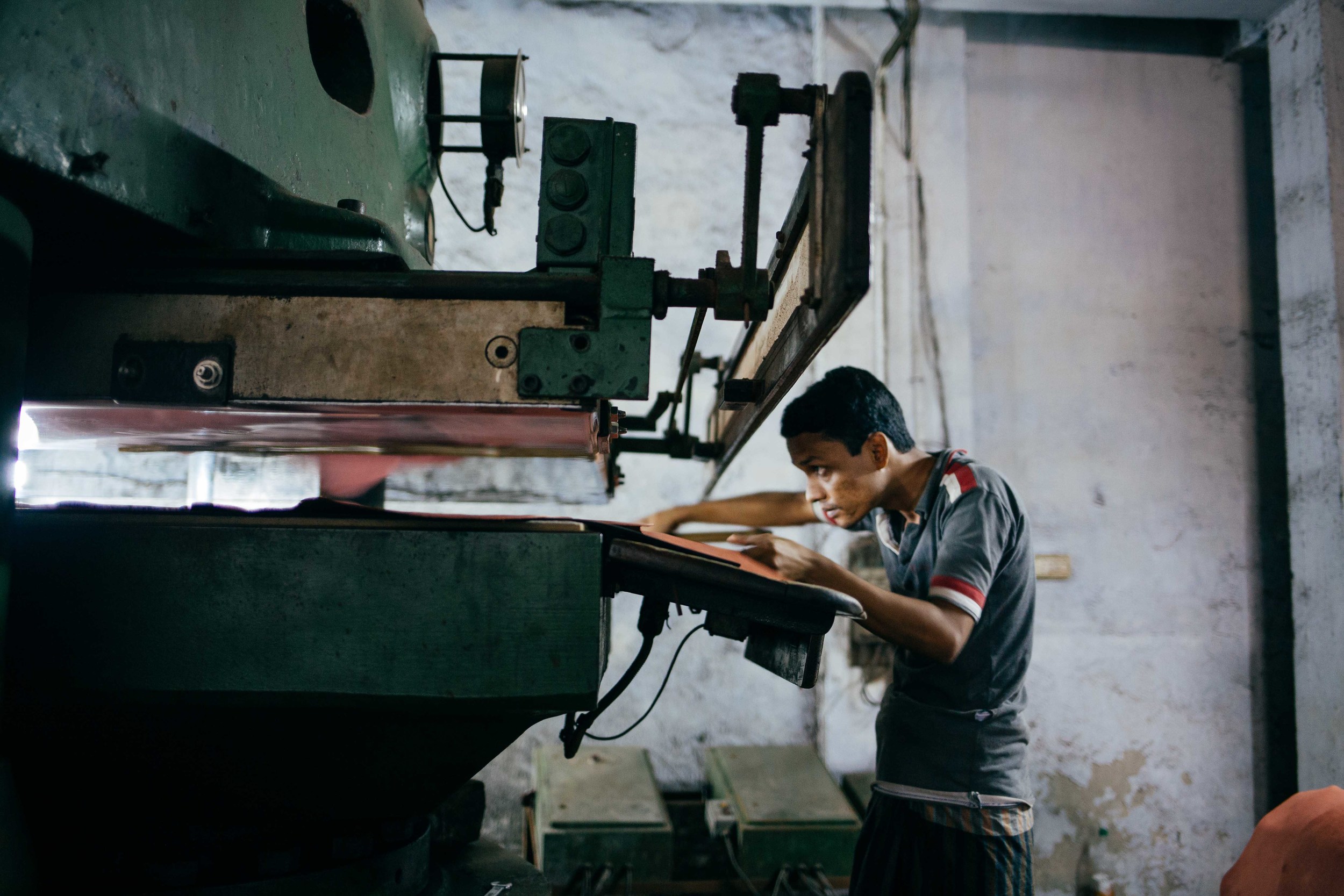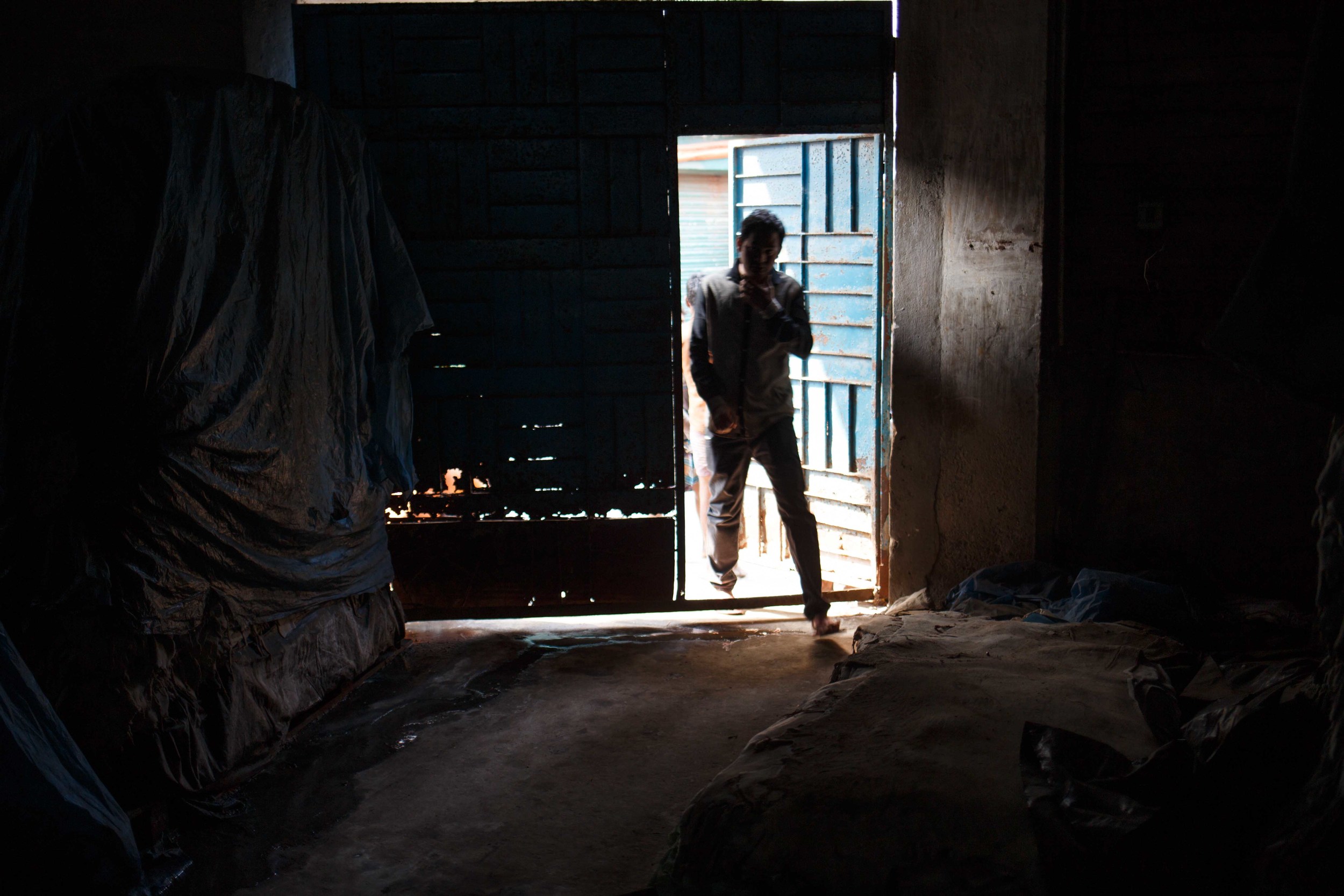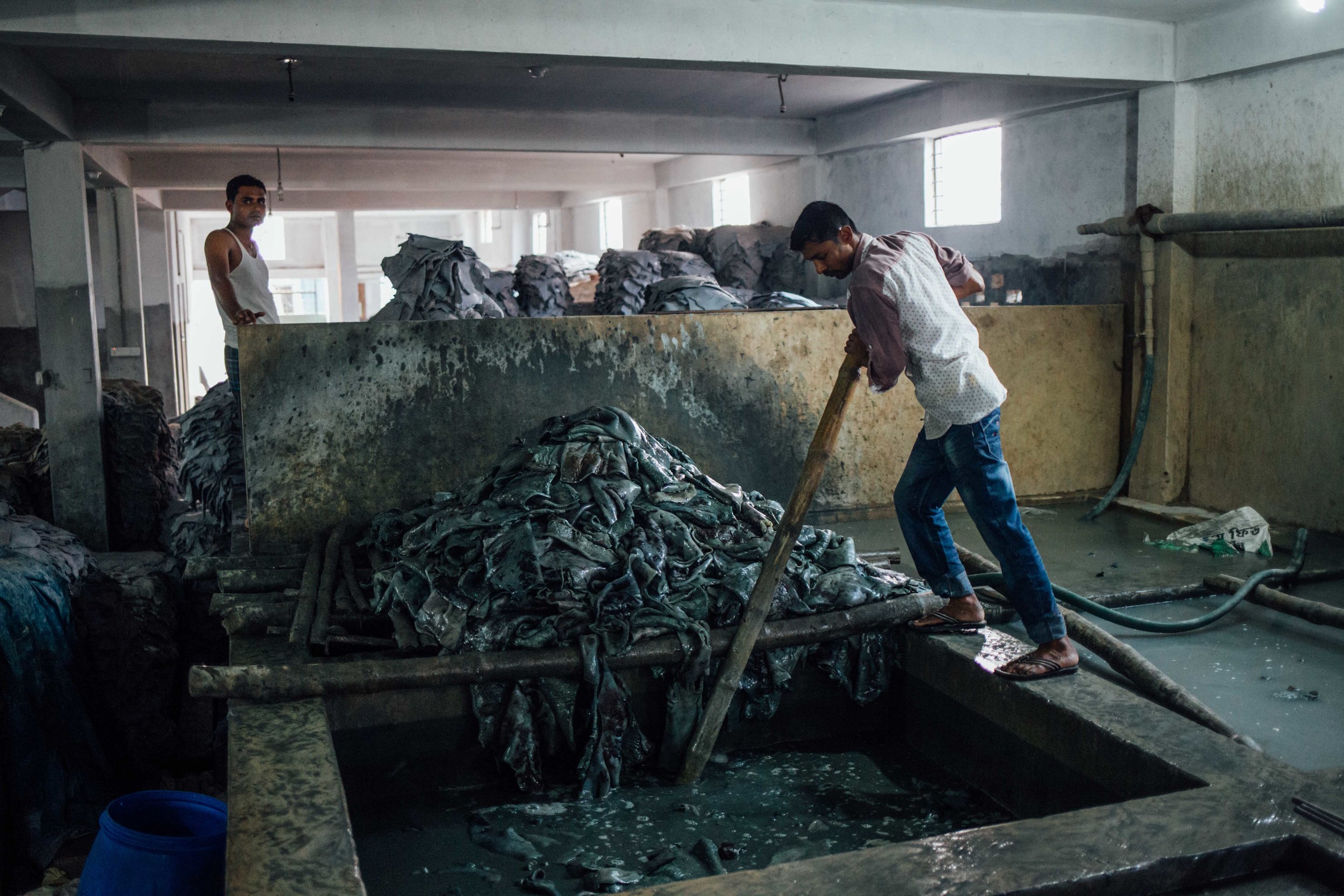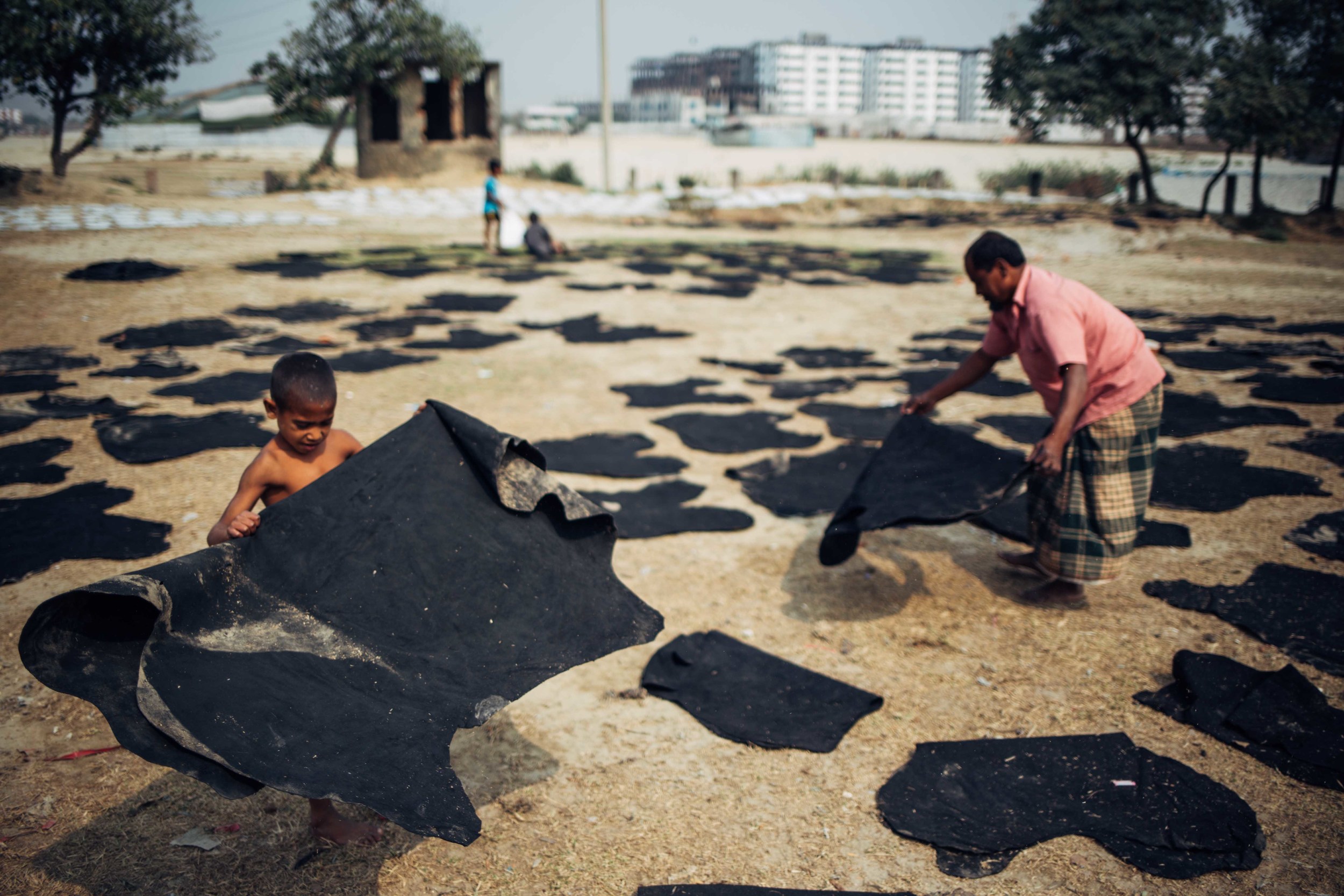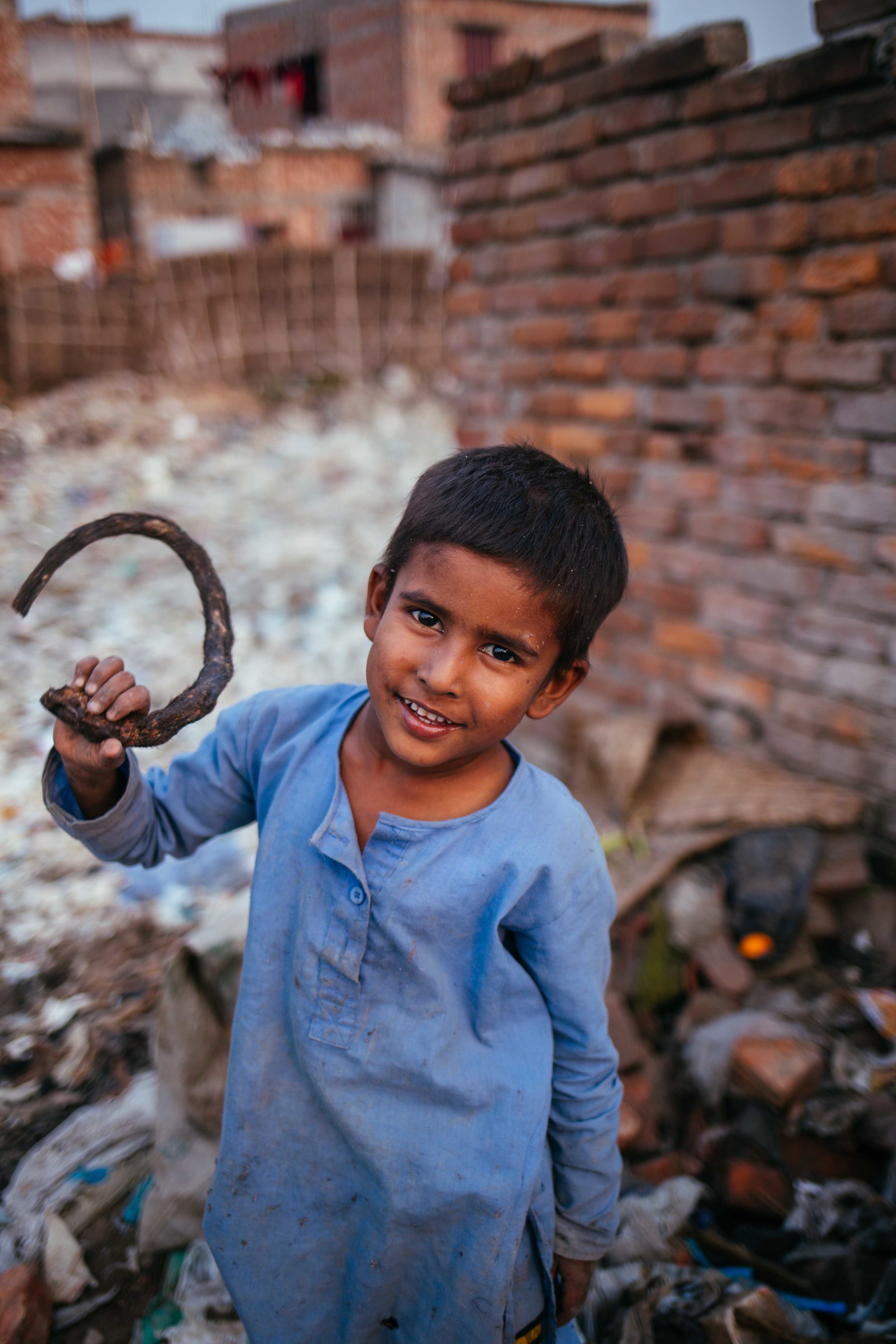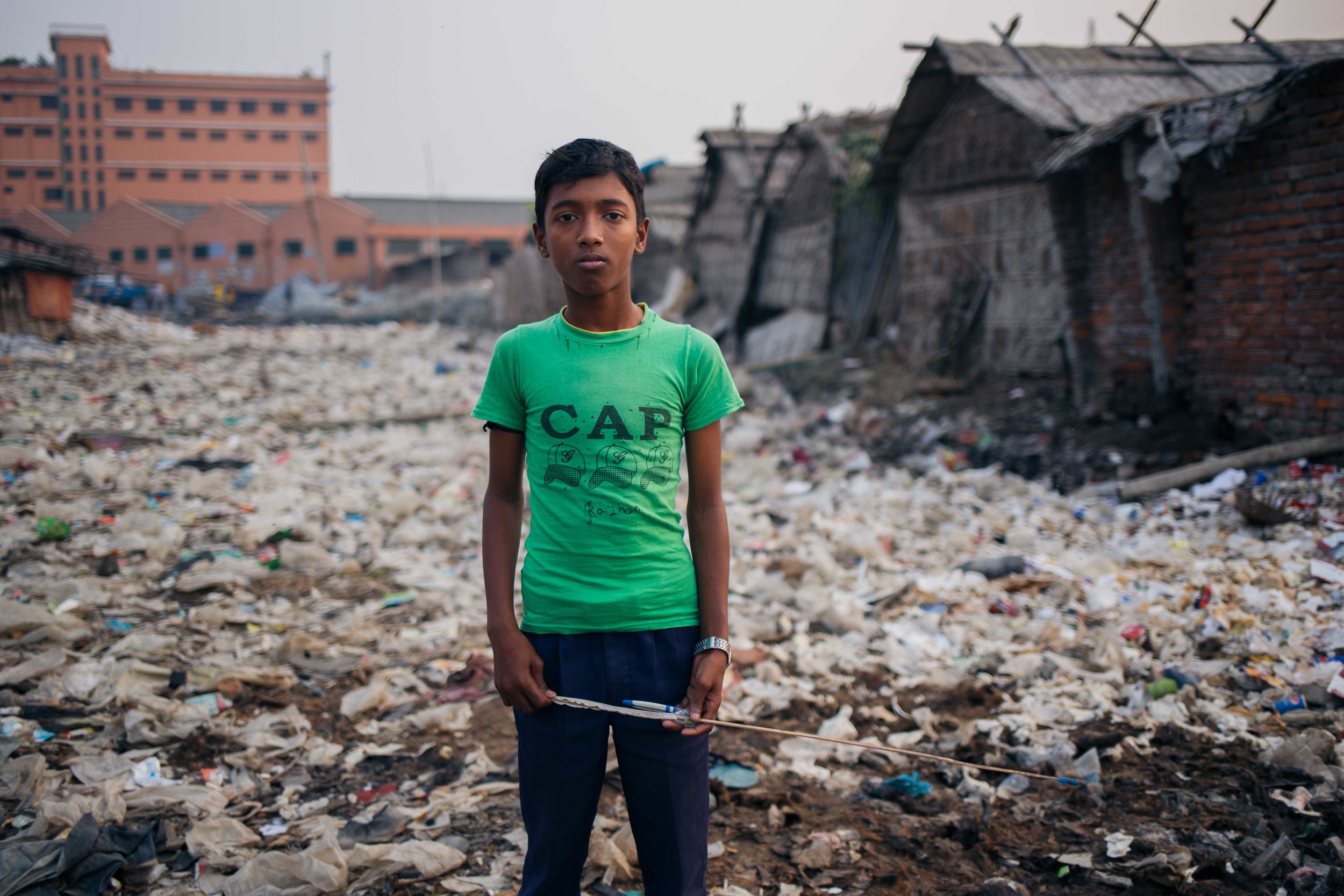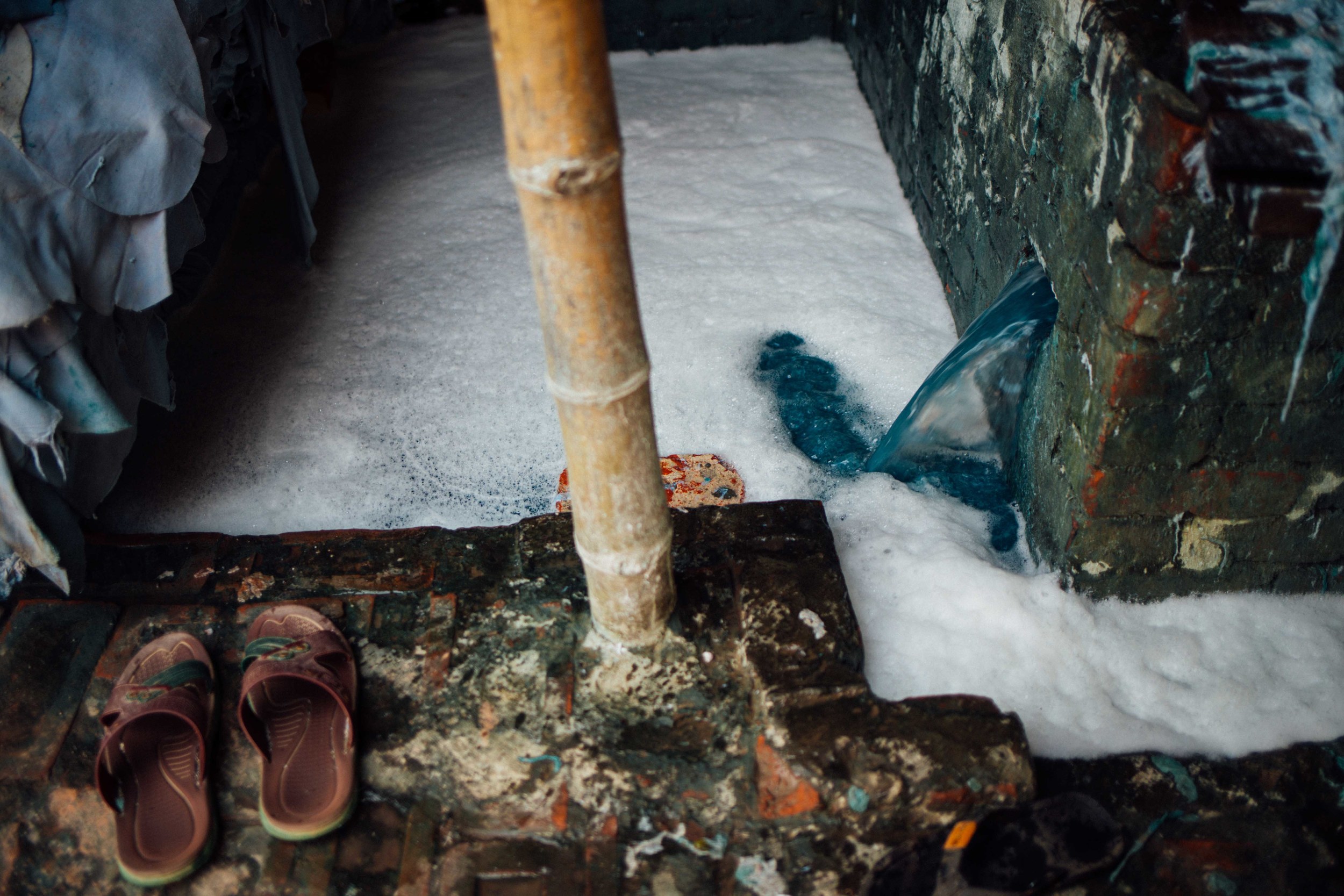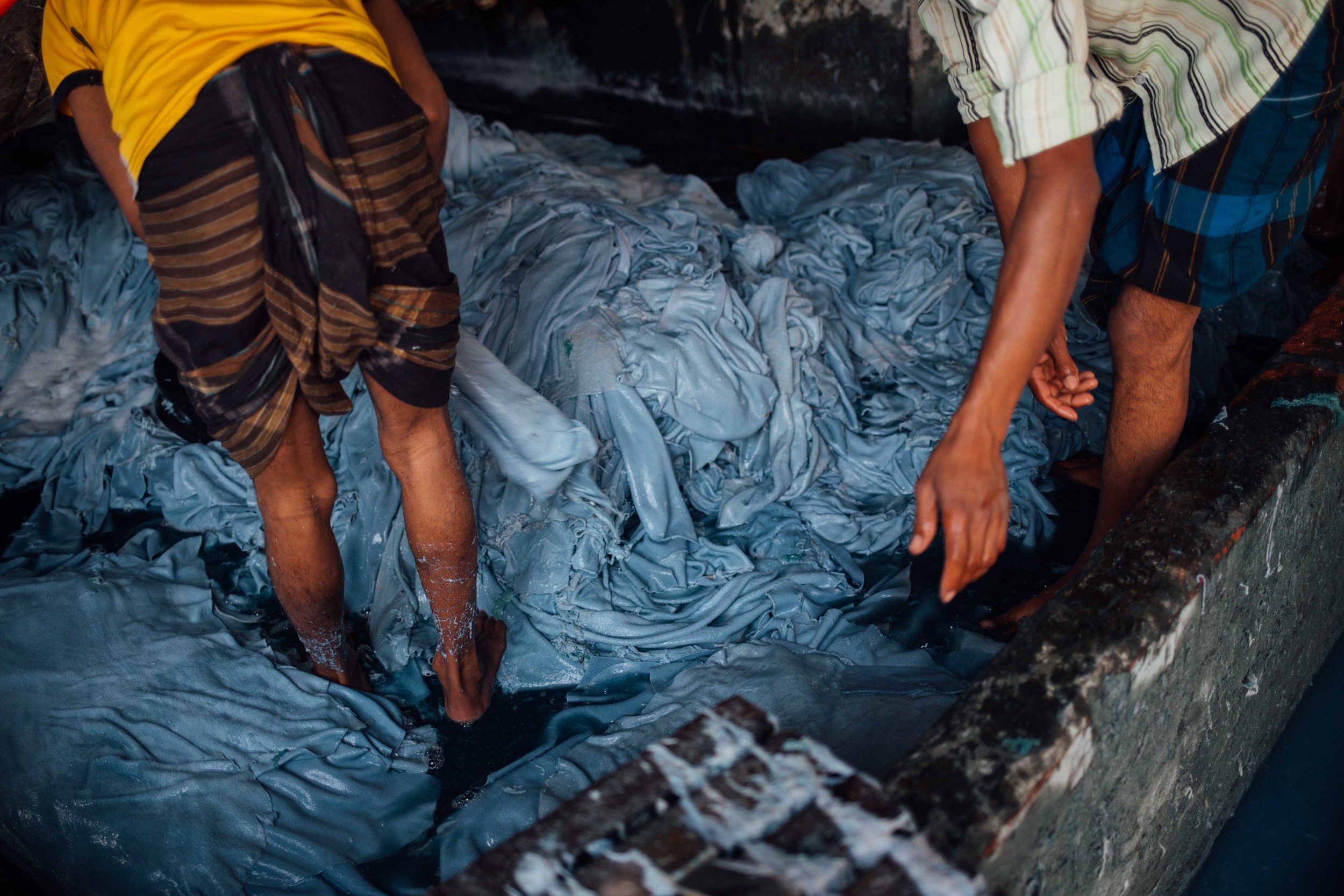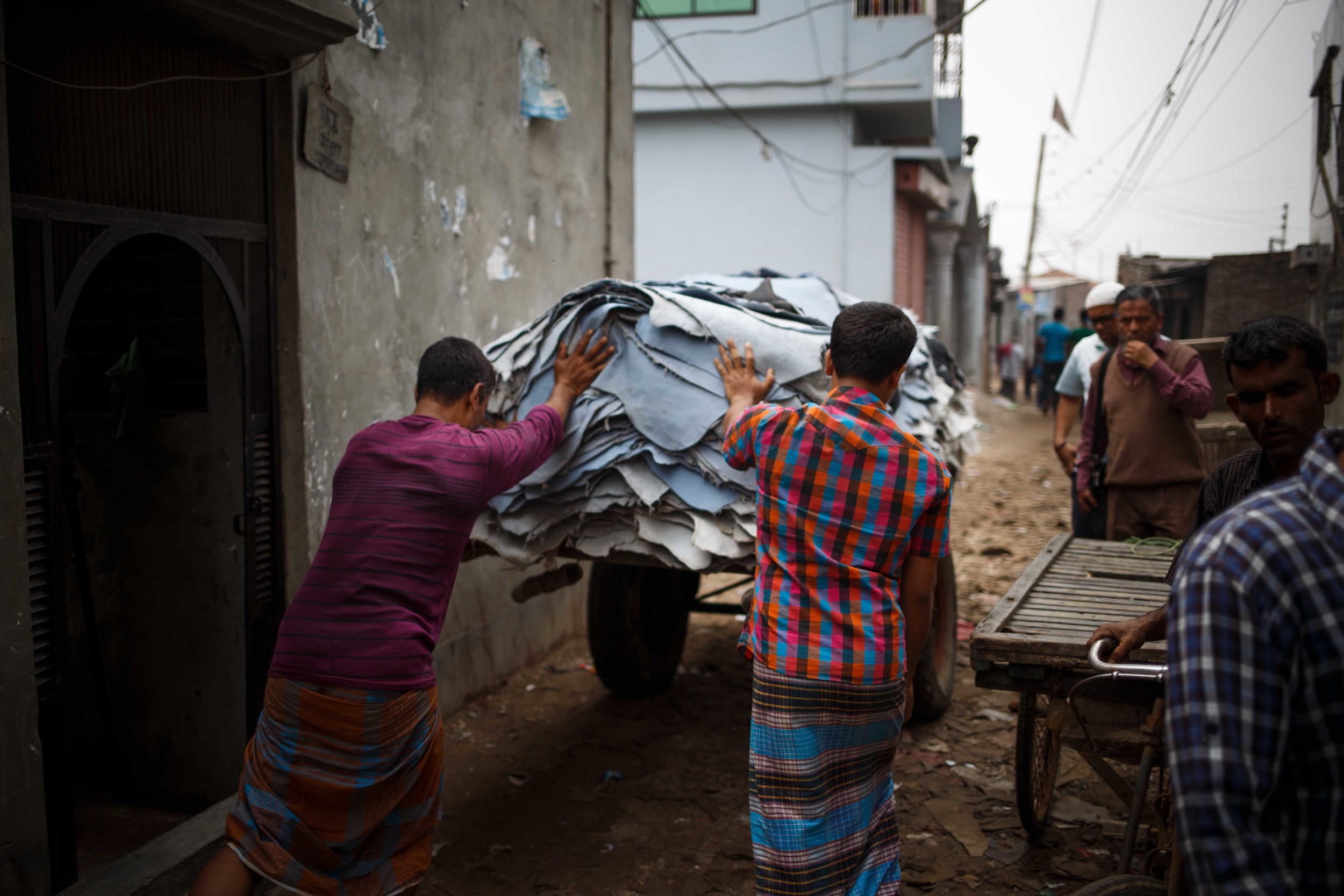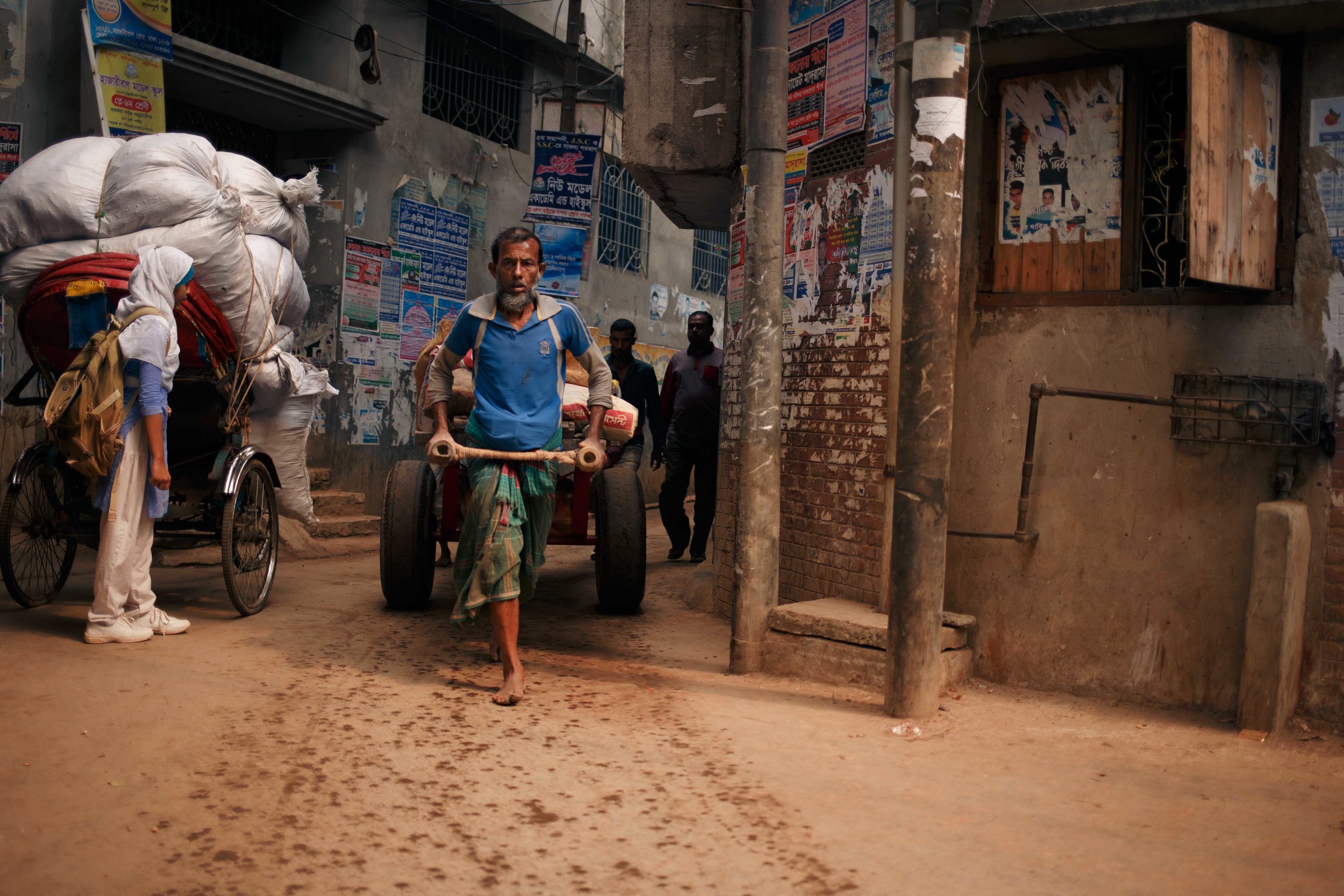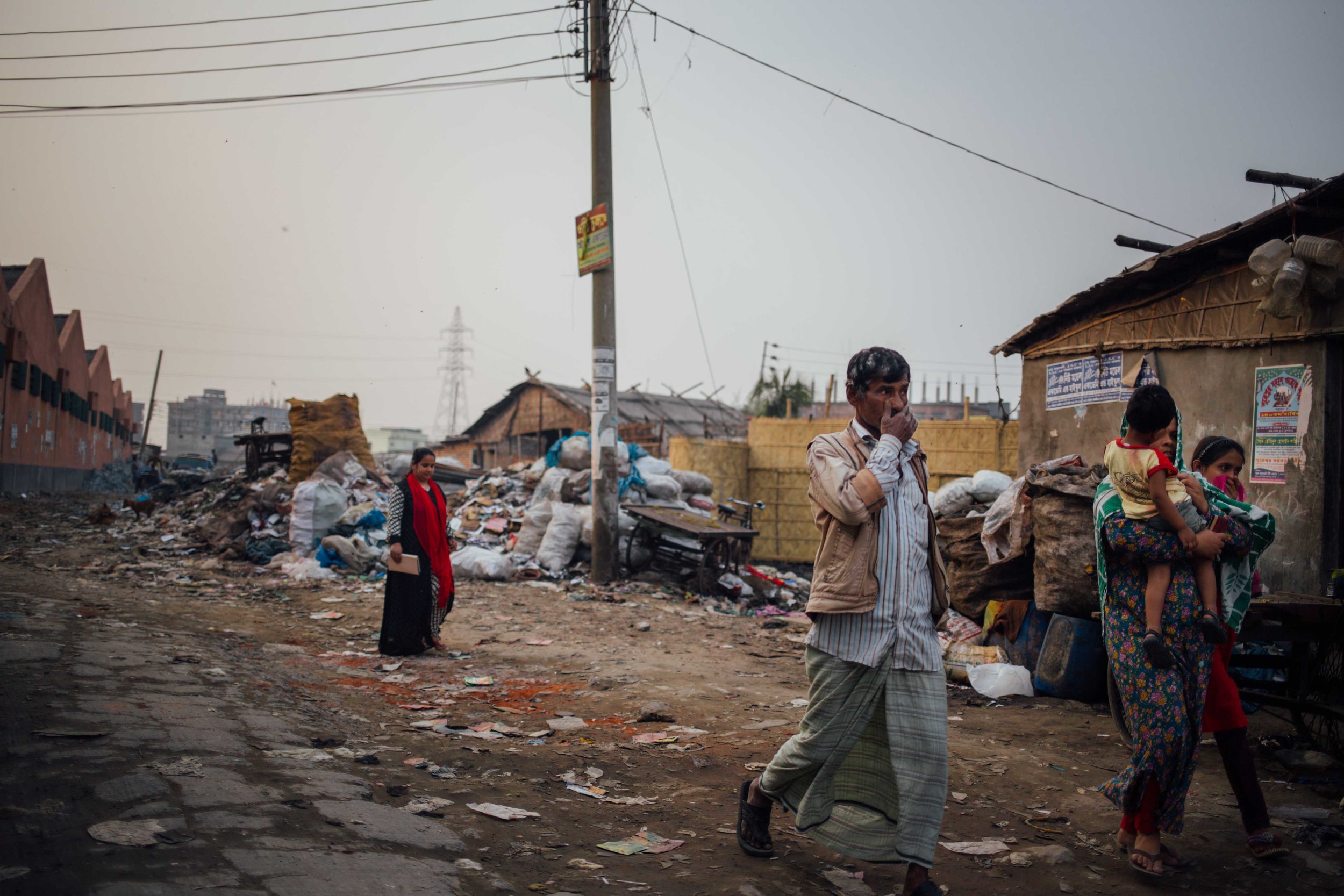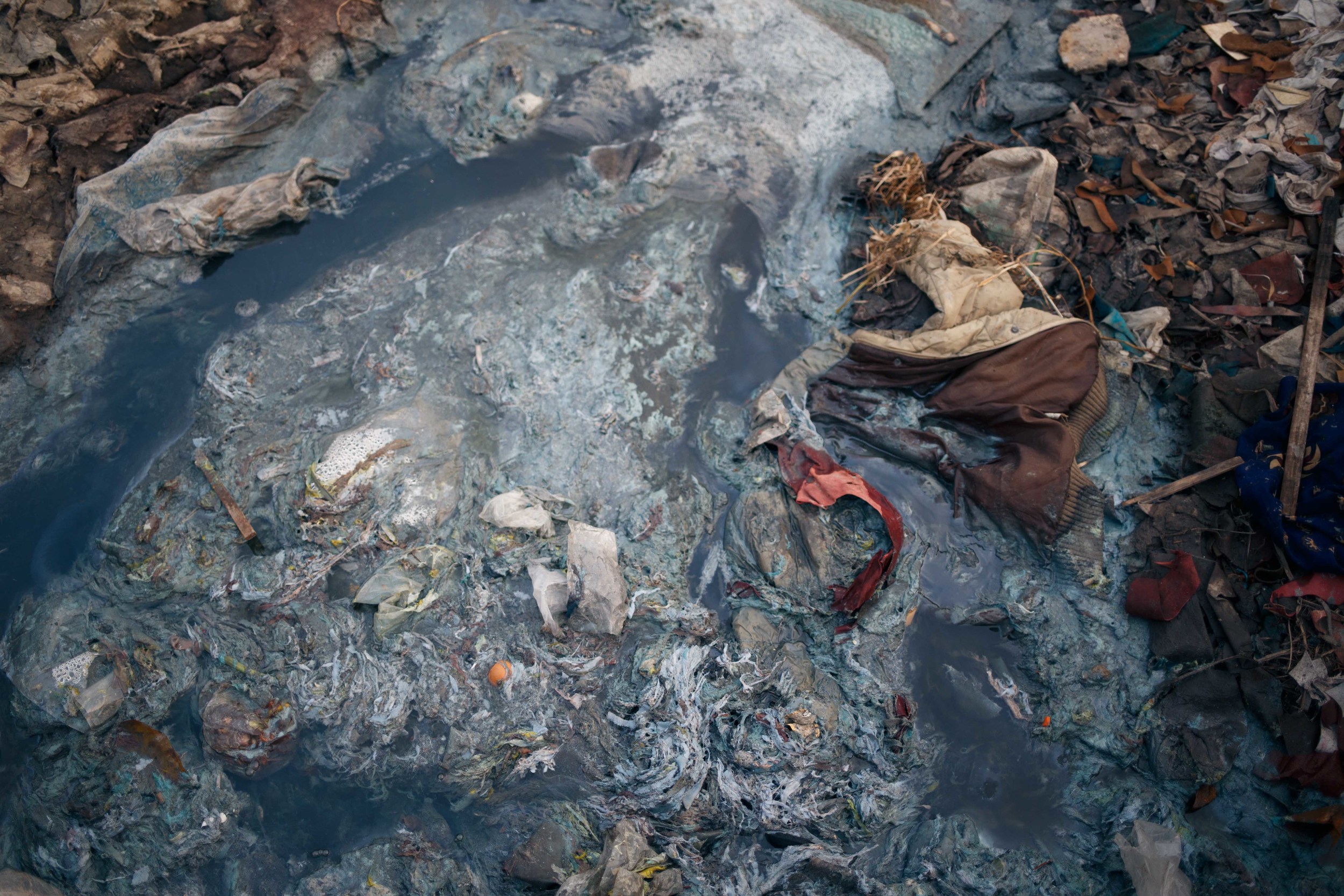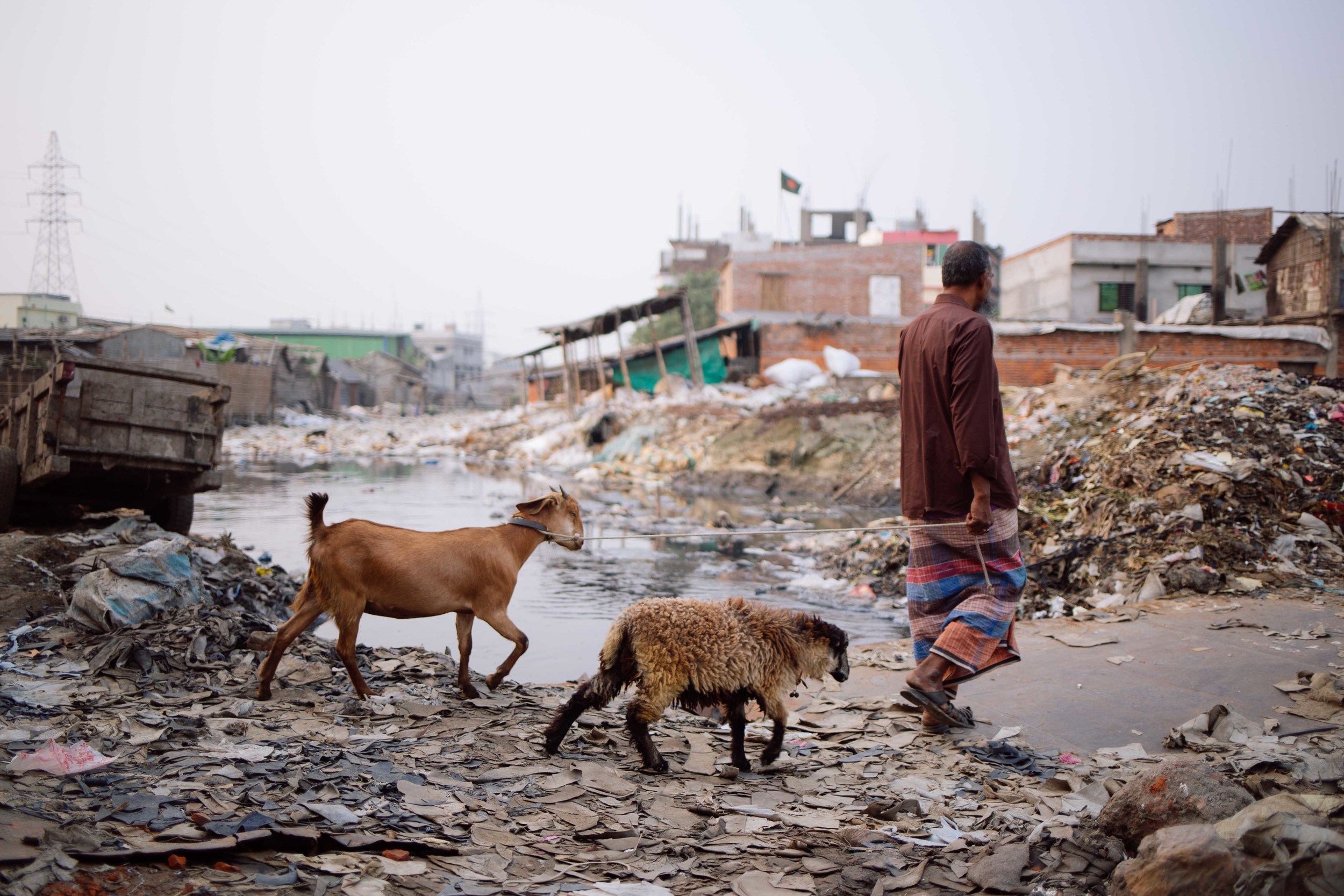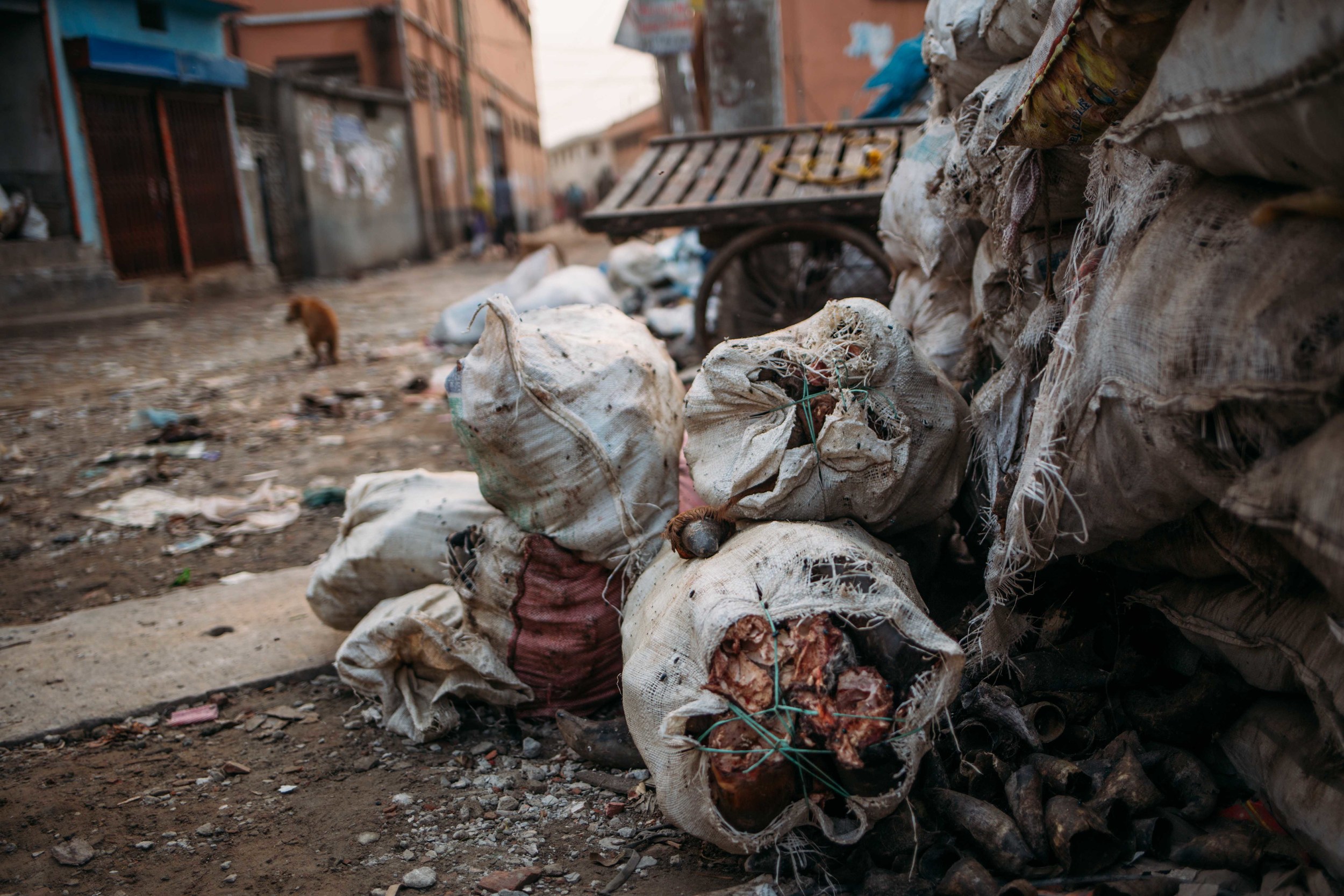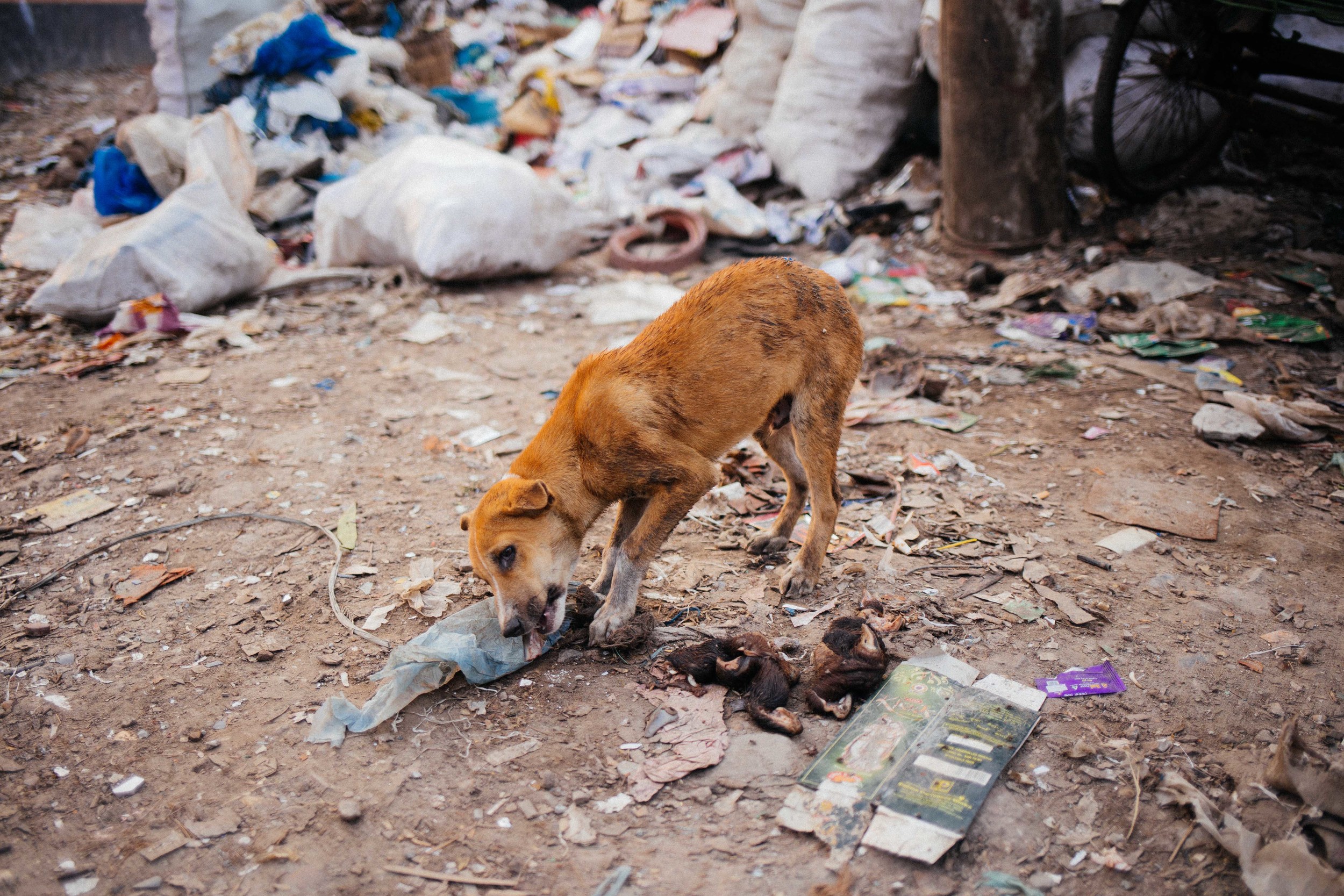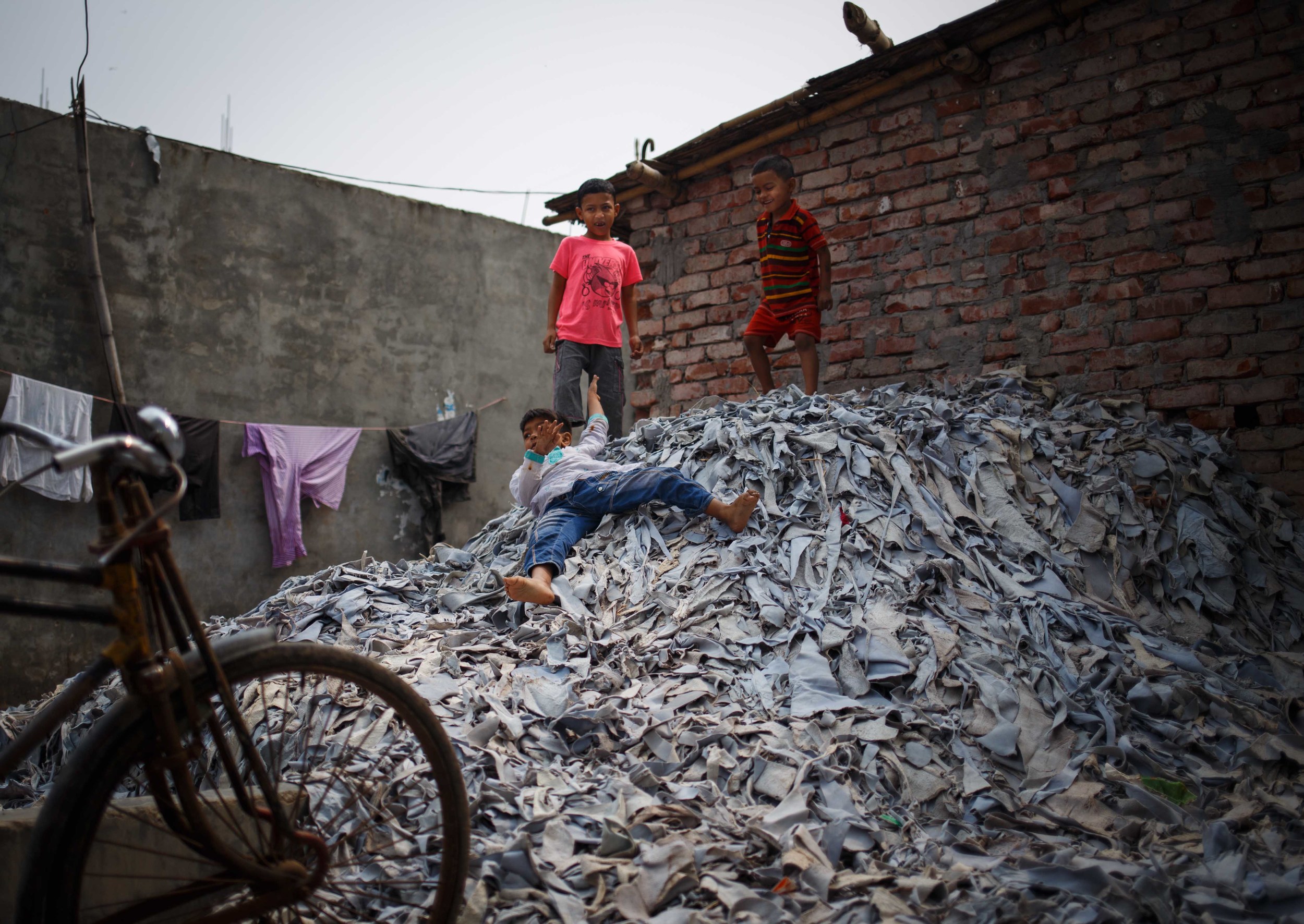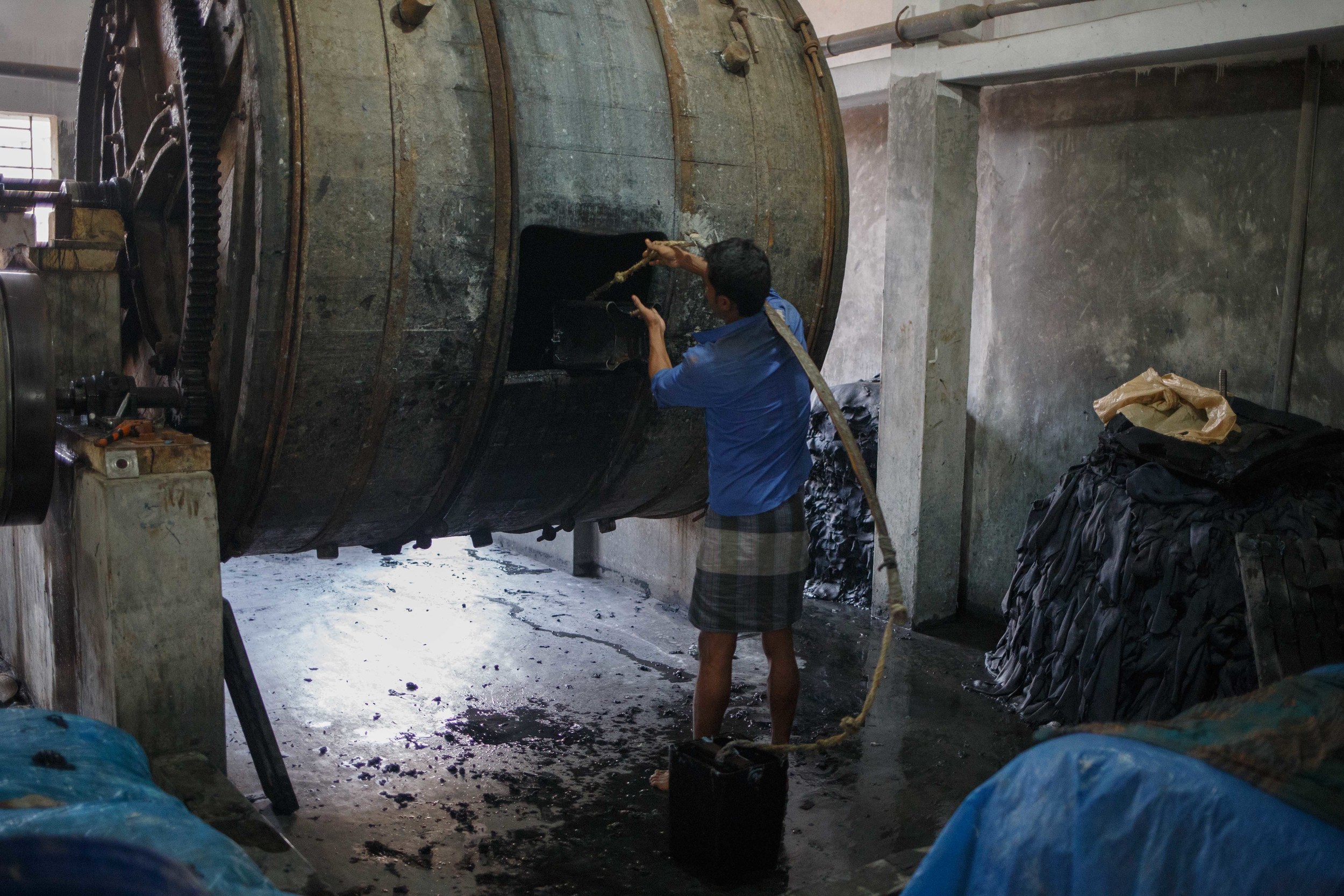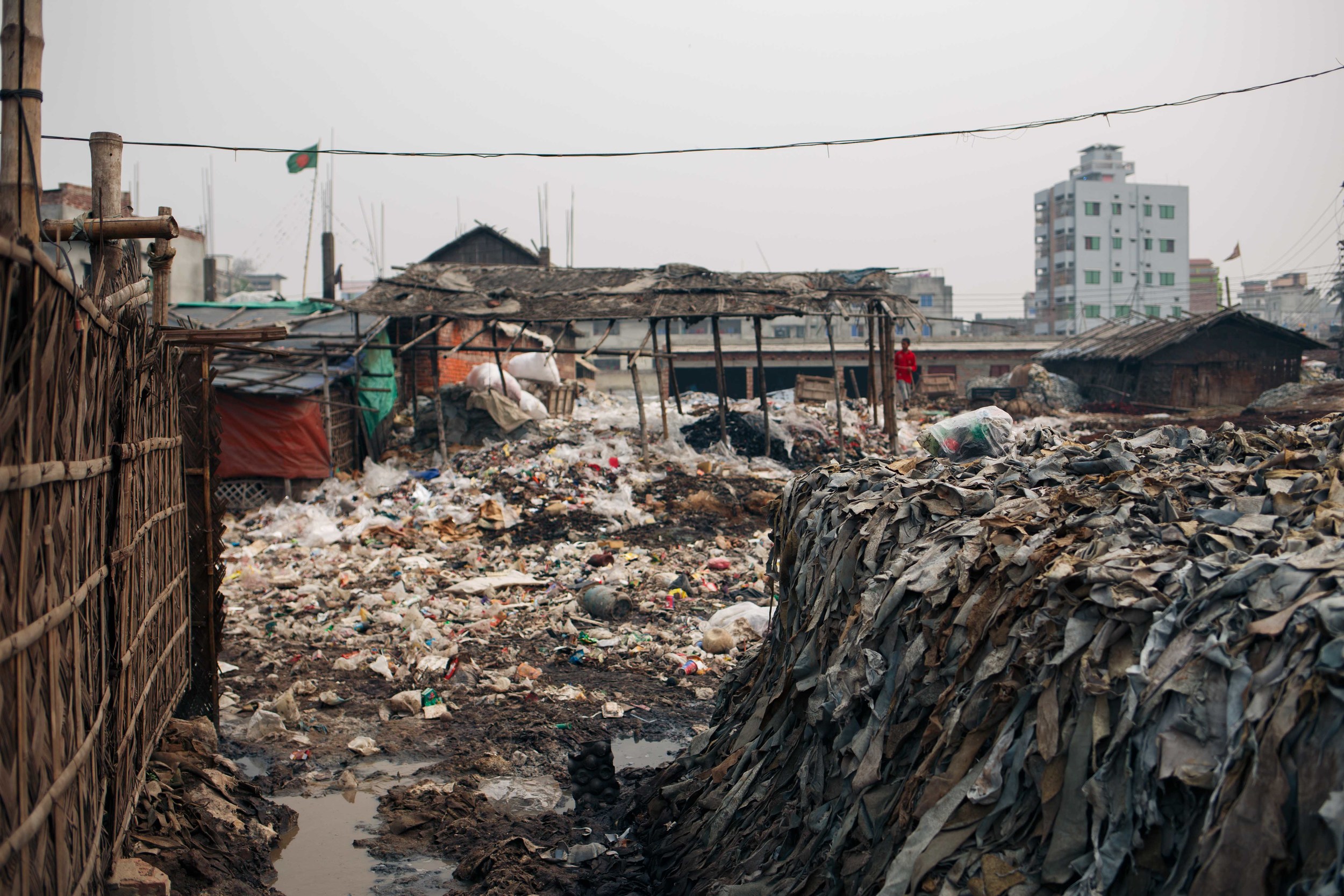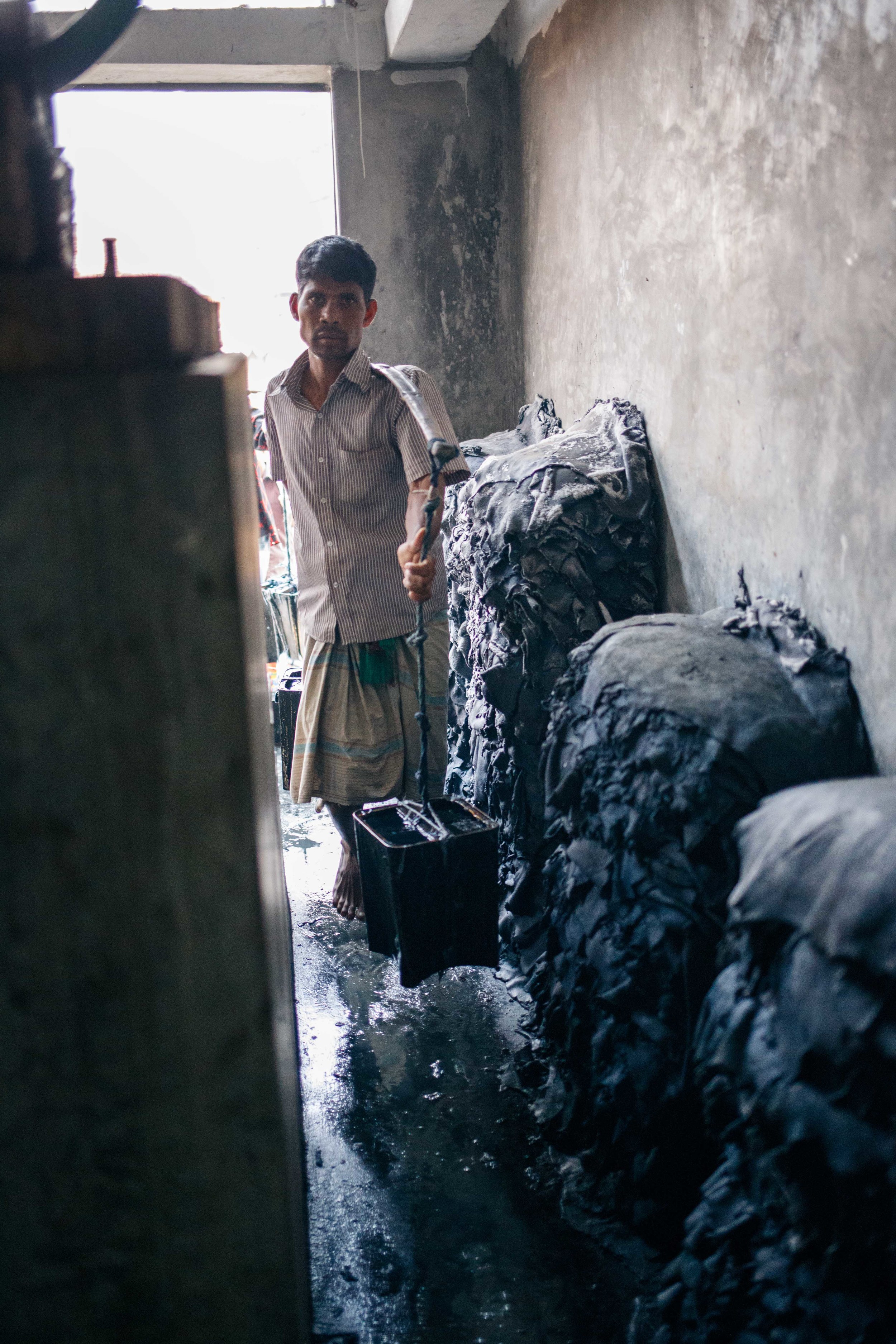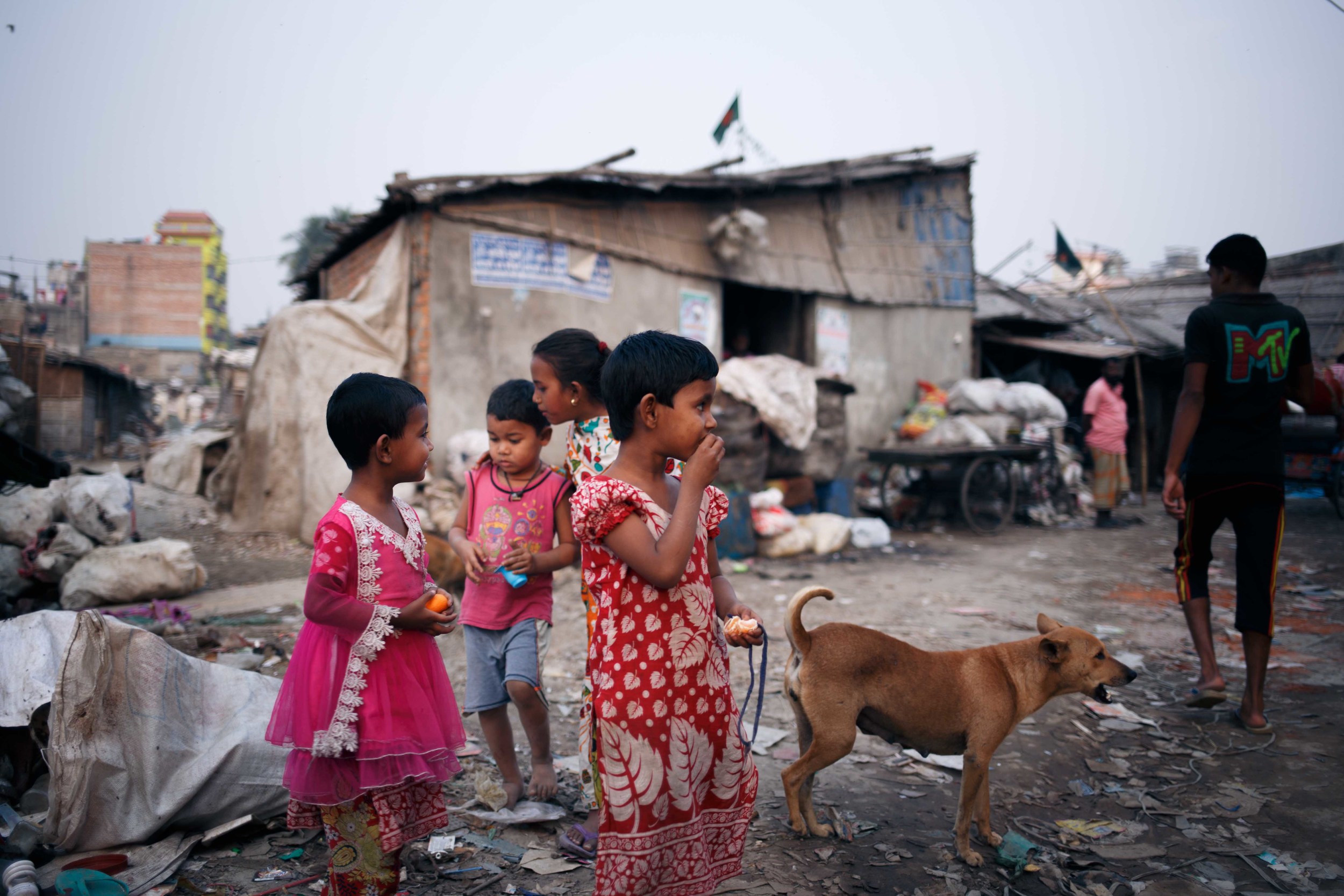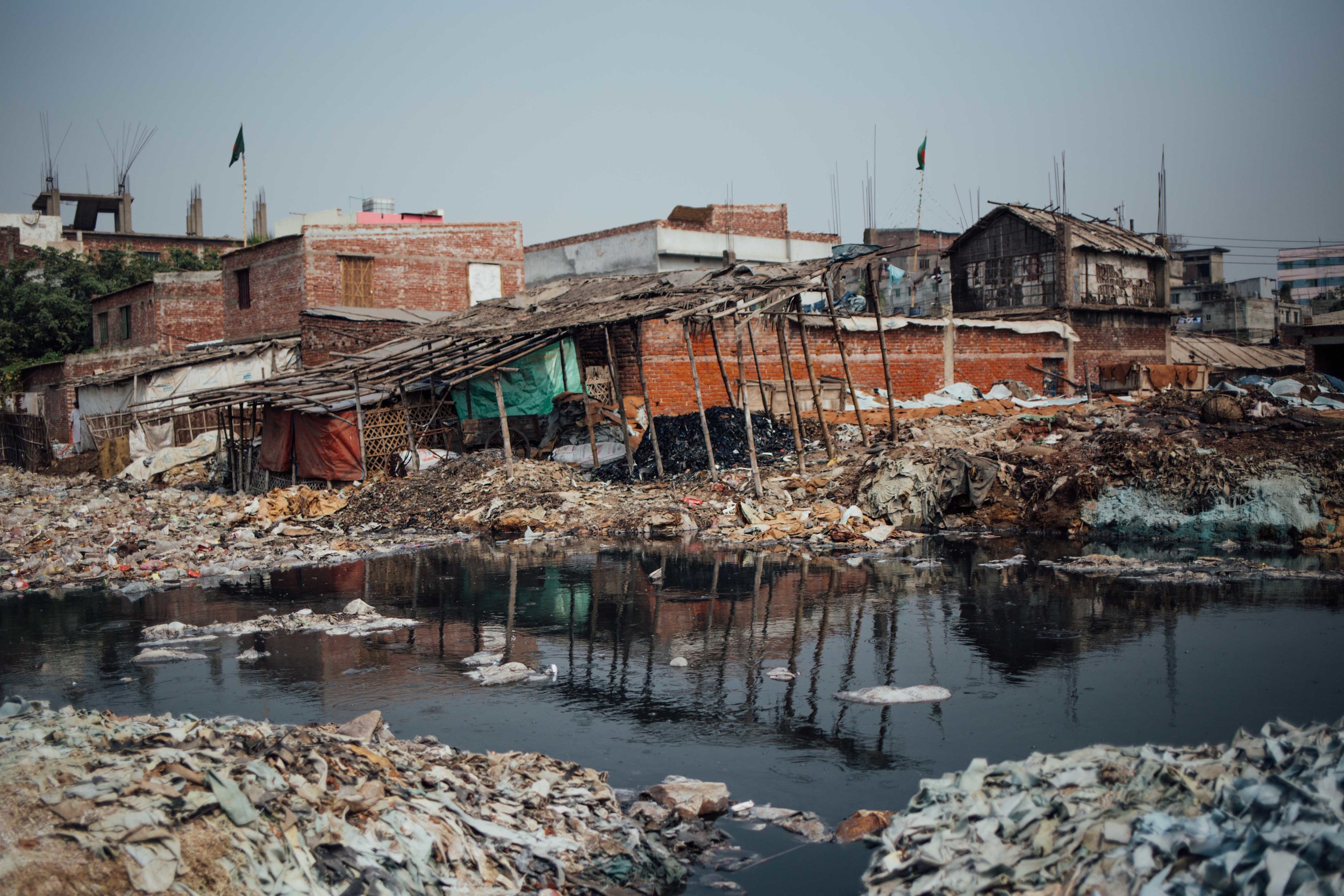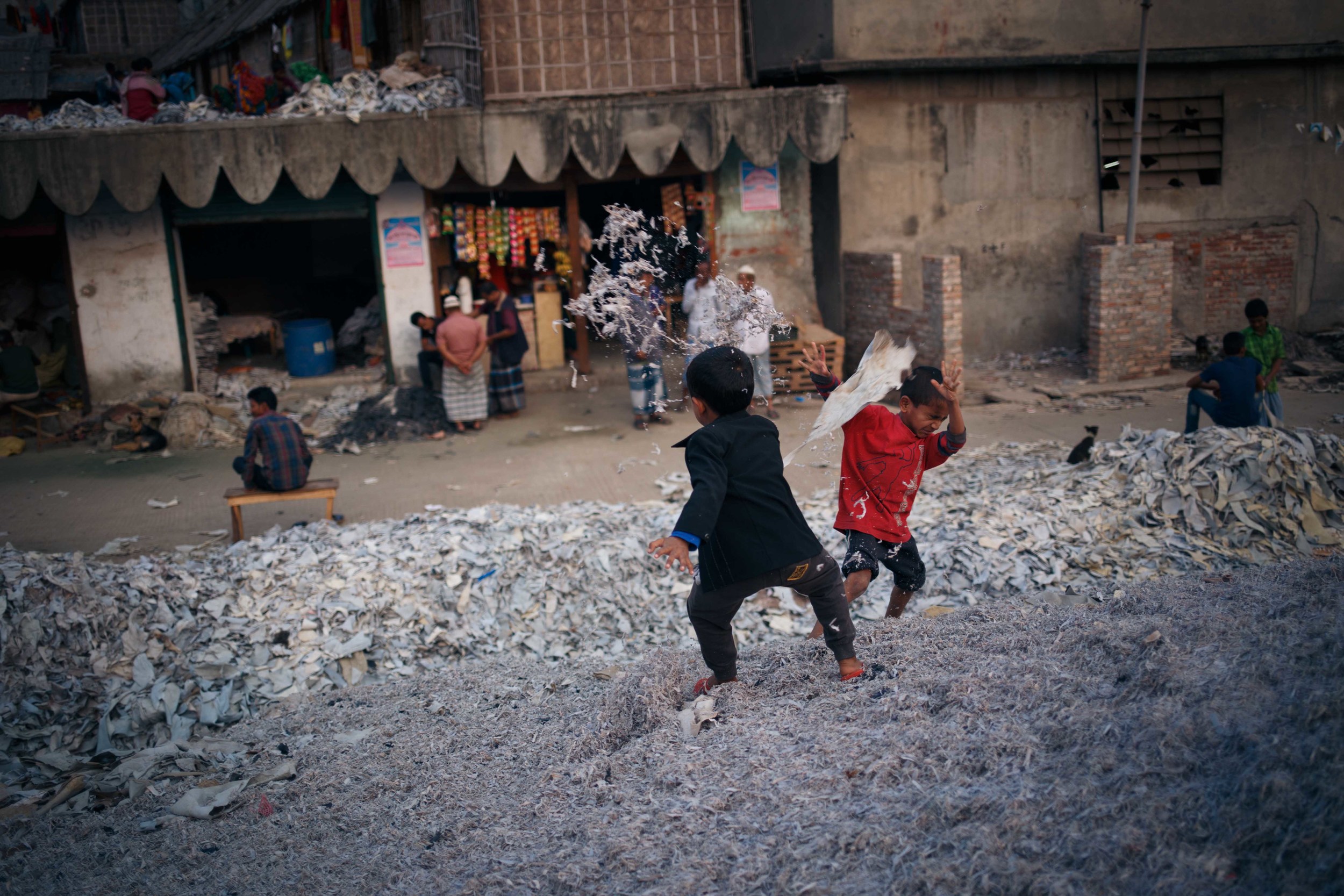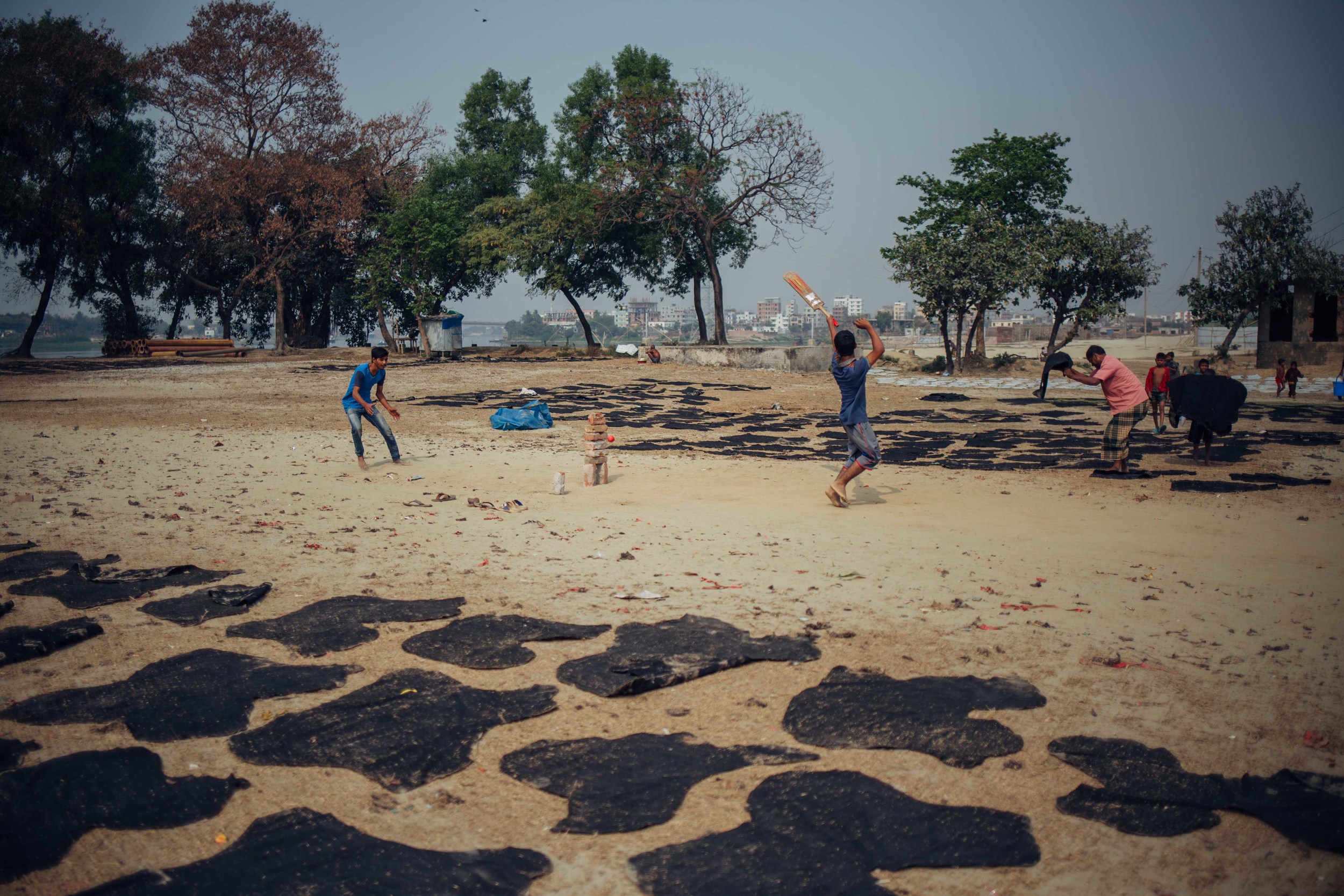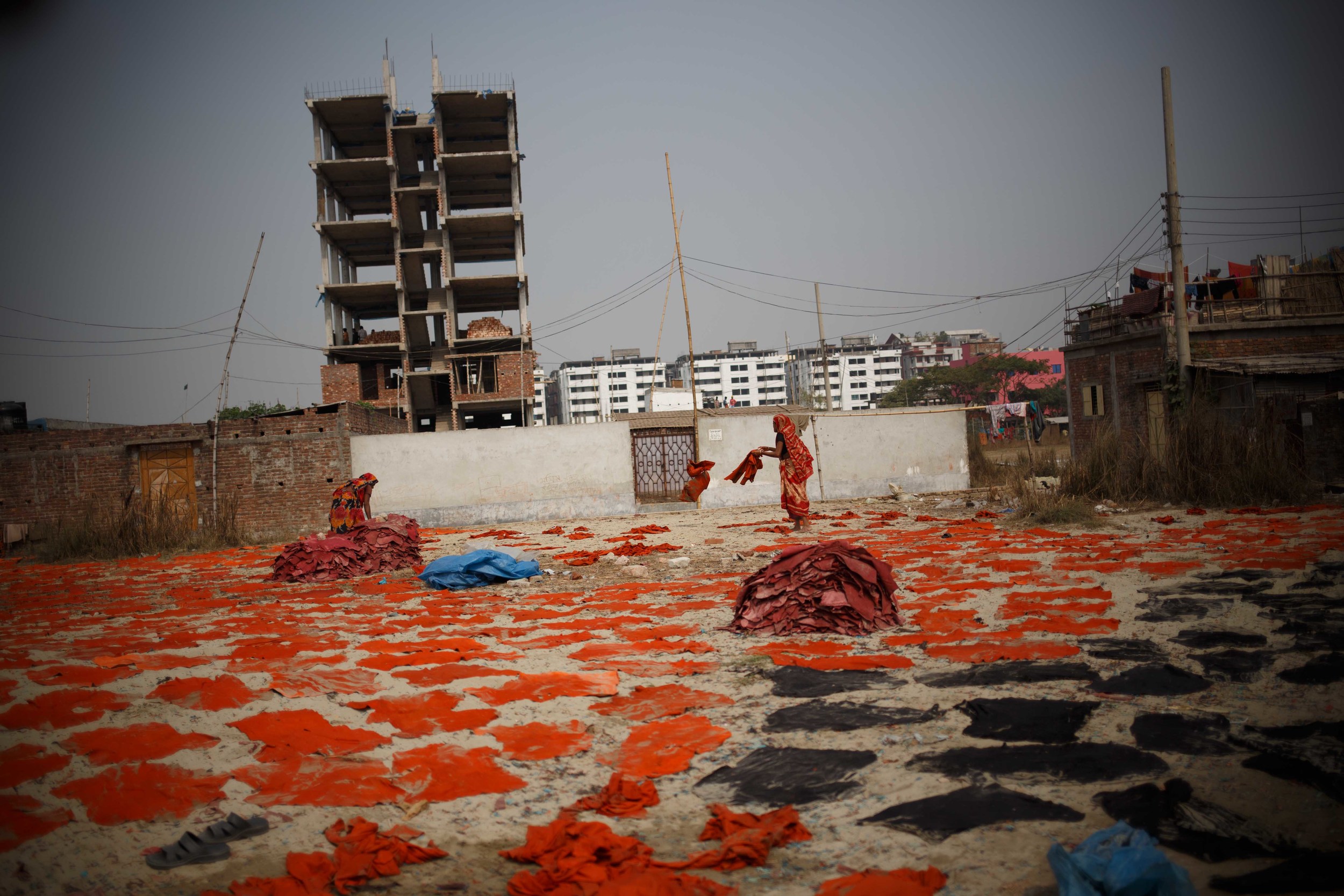Hazaribagh: 'A Thousand (polluted) Gardens'
Hazaribagh lies on the banks of the Buriganga (The Old Ganges). The river is a central artery to the heart of Bangladesh’s capital, Dhaka, providing the main source of water for a city infamous for being one of the most densely populated places on Earth. Hazaribagh literally means “ A thousand Gardens,” today aquatic life can barely survive in the surrounding waters due to the high levels of toxins in them. Home to Bangladesh's famous leather industry, the entire locality consists of numerous tanneries and factories that leak toxic chemicals from the leather tanning process into the Buriganga river, as well as employing thousands who work with carcinogenic compounds often without any form of adequate protection. According to a World Health Organisation report, it is estimated that 90% of the workers in Hazaribagh will die before reaching 50 and was labelled the 5th most polluted location in the world in a study of the World’s worst polluted places by the Blacksmith Institute and Green Cross Switzerland in 2013.
Hazaribagh has gained attention in recent years increasing pressure for the movement of the leather tanneries to a new location in Savar with modern treatment facilities. Whilst potentially moving to such an area would yield many benefits I decided to focus my project on the livelihoods of those currently working and living in the area, and felt that little attention was being given to how such a move would affect their lives having depended on the formal and informal economy provided by the tanneries presence for so long. The situation in Hazaribagh is endemic of the country itself. It is a story of corruption and negligence that poisons the veins of the country, its physical manifestation being embodied by the slow death of a river that is arguably the country’s central lifeline providing essential transport links and water to the entire city. Hazaribagh brings in a significant portion of the country’s export totals to buyers in the U.S, Japan, and Europe. Due to the wealth the leather industry accumulates, the owners are well connected politically which has delayed the movement of the tanneries. A move to Savar would be a costly undertaking for the leather companies, and a move for the landlords of tanneries would entail a reduction in profit from the tanneries being on their land.
In 2001 a High Court ruling in Bangladesh deemed Hazaribagh a threat to the environment and recognised the hazardous working conditions of the workers in the tanneries. The ruling stated that all tannery waste should at the very least be treated using an Effluent Treatment Plant [ETP] in order to rid the contaminants in the water before being released into the river. In addition, the High Court ruling back in 2001 stated that a move to the new factory site in Savar should begin immediately. However, tannery associations and the government overruled this by rejecting and extending the deadline multiple times to the point where the move to Savar is still being side-lined. The lawyer representing the tannery association’s claims for an extension is Sheikh Fazle Noor Taposh, the Prime Minister’s nephew and member of government who rejects accusations of his political standing interfering in the case. Department of Environment officials reported to a Human Rights Watch report that there is a policy not to implement environmental laws in Hazaribagh on the basis that the government is preparing the relocation site in Savar. Officials confirmed that, on the basis of this understanding, they do not regularly monitor water, air, or soil in Hazaribagh, nor do they incur fines or sanctions against tannery owners for untreated waste discharges from the tanneries.
The future of the residents and workers at Hazaribagh remains unclear. For workers, moving to the site in Savar is unrealistic as whole families are involved in some way with the tannery industry and having one person move for work would not be as profitable. Furthermore, the new site in Savar will likely draw in people from the surrounding area there, leaving many workers and families in Hazaribagh with an unknown future.
